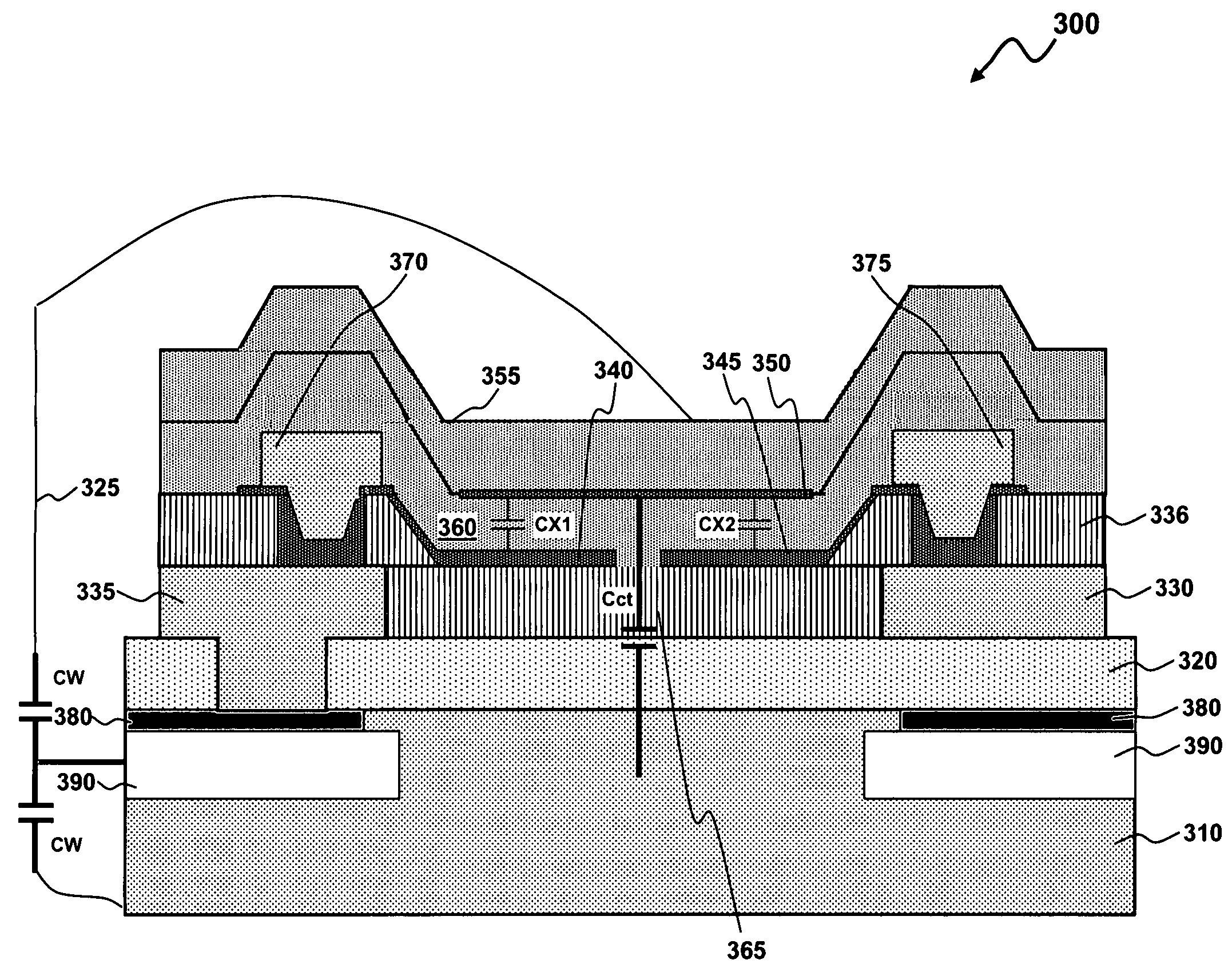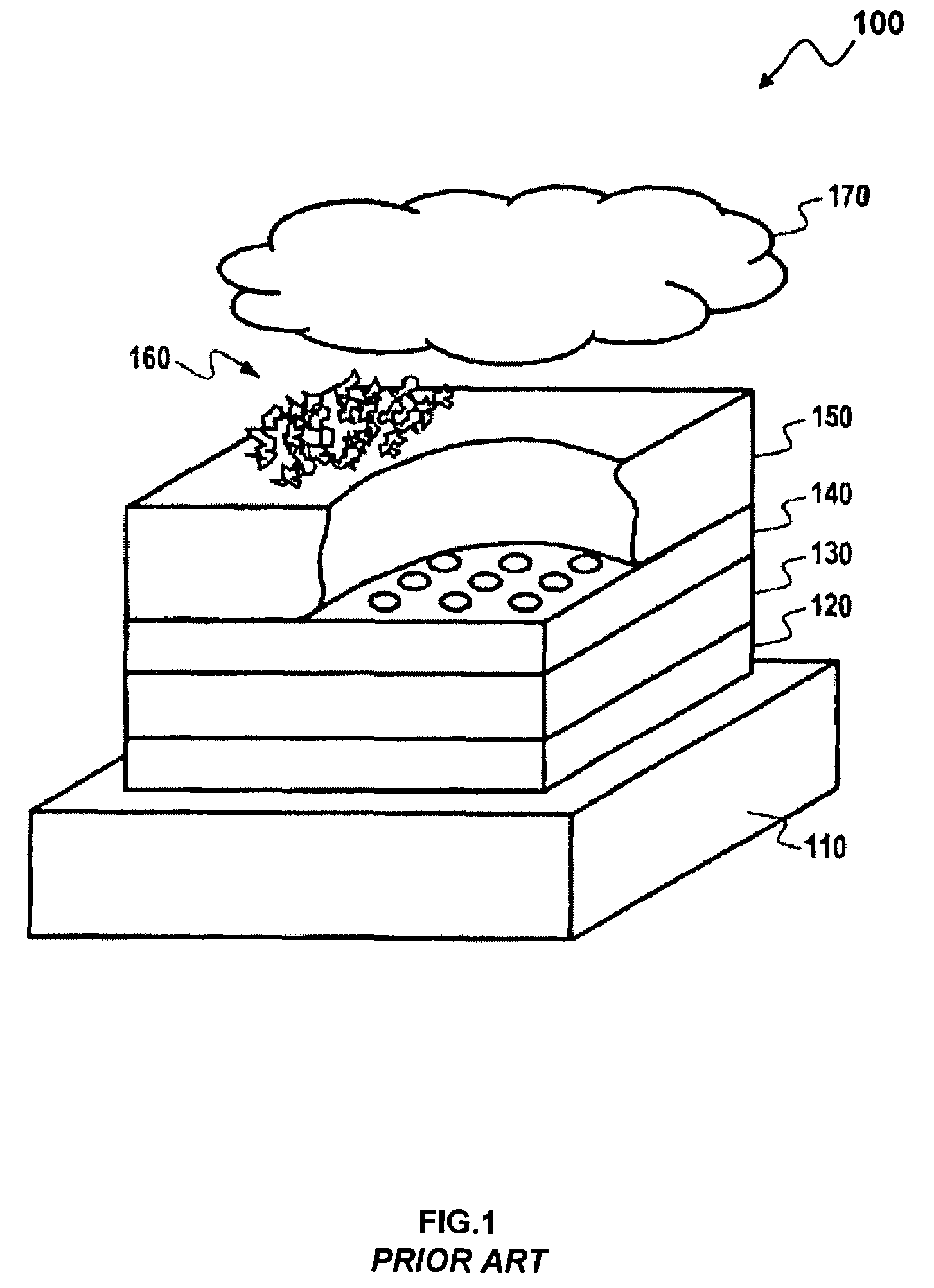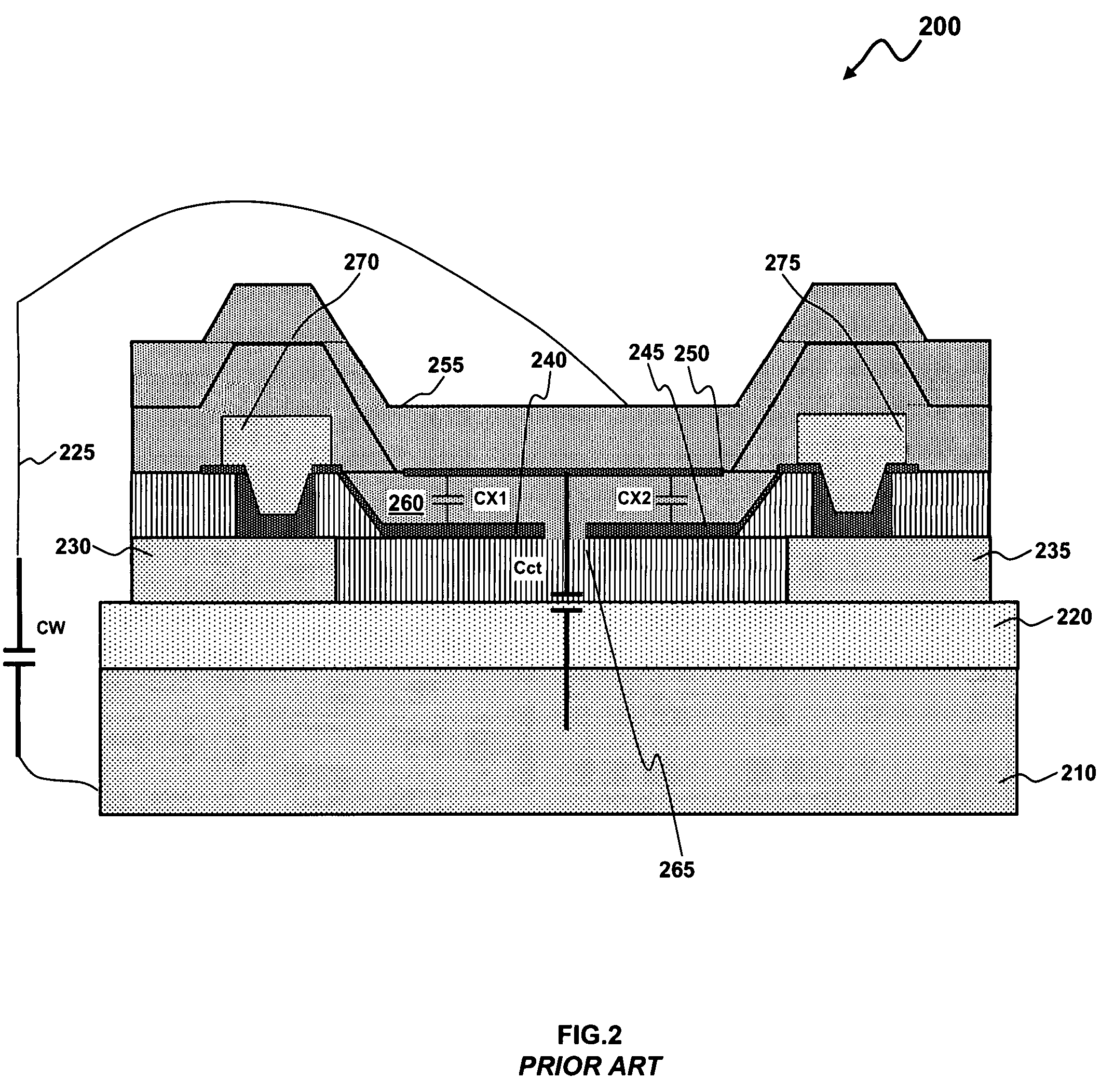Structure for capacitive balancing of integrated relative humidity sensor
a capacitive balancing and relative humidity technology, applied in the direction of variable capacitors, resistance/reactance/impedence, instruments, etc., can solve the problems of erroneous readings, dispersion effect, and elements utilized as resistive components, so as to improve the capacitive balancing structure, improve the accuracy of humidity measurement, and avoid additional costs
- Summary
- Abstract
- Description
- Claims
- Application Information
AI Technical Summary
Benefits of technology
Problems solved by technology
Method used
Image
Examples
Embodiment Construction
[0024]The particular values and configurations discussed in these non-limiting examples can be varied and are cited merely to illustrate at least one embodiment and are not intended to limit the scope thereof.
[0025]Referring to FIG. 3, a cut-away side view of an improved relative humidity sensor apparatus 300 is illustrated, in accordance with a preferred embodiment. It should be understood that there are other integrated components of the sensor that are not depicted in the figure. The humidity sensor apparatus 300 depicted in FIG. 3 can be used for humidity control in an air conditioner or to detect humidity for weather observation purposes. It is understood, however, that a wide variety of other applications for humidity sensor apparatus 300 can also be implemented, depending upon design goals and considerations. As depicted in FIG. 3, an N-type silicon substrate 310 can be employed as a semiconductor substrate 310. A silicon oxide film 320 can be formed on the semiconductor subs...
PUM
 Login to View More
Login to View More Abstract
Description
Claims
Application Information
 Login to View More
Login to View More - R&D
- Intellectual Property
- Life Sciences
- Materials
- Tech Scout
- Unparalleled Data Quality
- Higher Quality Content
- 60% Fewer Hallucinations
Browse by: Latest US Patents, China's latest patents, Technical Efficacy Thesaurus, Application Domain, Technology Topic, Popular Technical Reports.
© 2025 PatSnap. All rights reserved.Legal|Privacy policy|Modern Slavery Act Transparency Statement|Sitemap|About US| Contact US: help@patsnap.com



